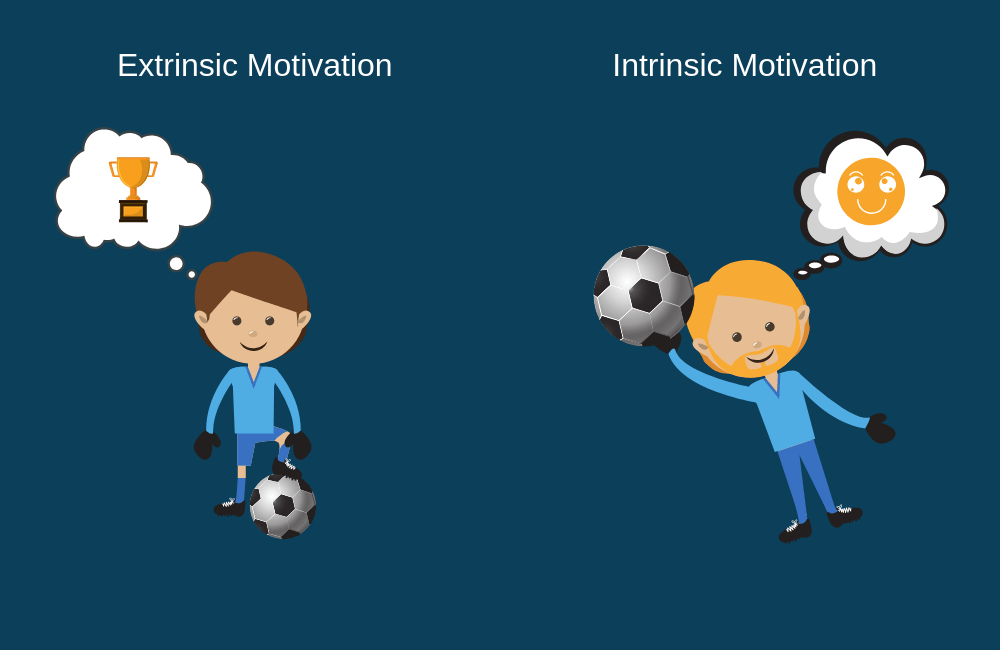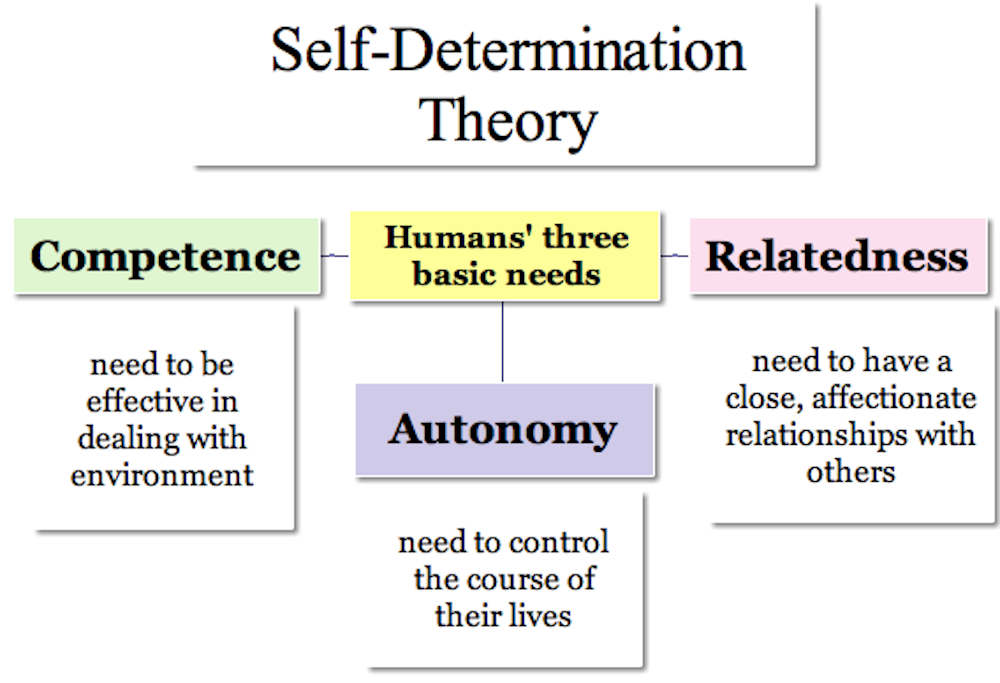By nature and in today’s time, motivation is a topic that matters for each and everyone at one point in life.
Whether it may be the motivation to go to the gym, study for university or to pursue any other kind of goal, motivation is the one key to start.
Let’s take me writing this article, for instance.
This blog entry is due for a while now. It has taken me enormous efforts to get back to it and rewrite it. But why is that?
In the beginning, I was very much looking forward to writing an article for this blog. Indeed, I was very motivated.
The perspective to collaborate with some of my close friends attracted me a lot. Also, I noticed the chance to broaden my horizon and to gather new experiences.
Finally, I had the chance to take the first step into being somewhat of an entrepreneur. To create something autonomously.
When I started to write this entry though, I realized that phrasing thoughts into a coherent text requires efforts. Lots of efforts.
Facing this fact scared me from the beginning on and hold me back from actually finishing this text for weeks.
This led me to the question, how to get motivated again. For me, it was about not giving up and stick to the initial goal.
But, what did happen to my attitude that kept me from proceeding in the first place?
In the following, I will portray some of the inner processes that play a role when it comes to motivation.
What Is Motivation?

Motivation, in general, is defined by a behavior that is strong and persistent. Behavior, that is being executed in favor of a purpose.
Besides, motivation varies in intensity. Depending on the situation, people are more or less motivated.
Think of professional athletes. Of course, they are motivated. Among others, you can tell by the fact that they are eagerly working on attaining their goals. They most likely train every day and they do so for years.
We will get to know the deeper reasons for their ambition in the further course.
There are two main types of motivation. Scientists coin them extrinsic and intrinsic motivation.
Extrinsic Motivation
Extrinsic motivation causes behavior that leads to fulfilling goals that lay outside of the individual. Its only reason is to exhibit behavior in order to reach a certain consequence.
This may be to avoid punishment or to gain a predefined goal.
Without anyone being the wiser, there are several examples of such activities.
Think back to your time in school. The time, when you studied all day to pass the exam. Or to get a good grade to come home with.
Take the performance you aimed for in your local sports club. Just to impress the audience or that sweet looking girl at the end of the field. This is only to name two of countless examples for extrinsically motivated behavior. Behavior, that you engage in for external incentives.
Intrinsic Motivation
Intrinsic motivation, in contrast, describes behavior that is executed for the sake of the activity itself.
It is more self-sustaining and provides oneself with joy and natural pleasure. For this kind of engagements, you do not need any external rewards or punishments.
You just love what you are doing, no matter what.
Examples of intrinsically motivated behavior patterns are diverse. They differ from individual to individual, of course.
But most important: they make you happy!
Let’s go back to our initial example, the professional athletes.
Athletes and their seemingly undisturbing strive for success.
What is it that keeps them being so motivated?
As you may have guessed already, it is the fact that they really love what they are doing. They are performing intrinsically motivated behavior.
They don’t necessarily start to do sports in their childhood to become Olympic gold medal winner some day.
For most of them, training hard is what they love in the first place.
And so has each and everyone his or her passion that just makes you feel good.
In my case, I love to do sports that exhaust me. In doing so, I can let go of any thoughts and worries and get immersed by the present activity.
Also, I love to read and to get lost in the lines of a book. To absorb new information and install them into my own knowledge.
I pursue neither of both activities for attaining a reward or to avoid punishment. It’s the activity itself that satisfies me.
As you can see, these self-motivated actions can be found in every concern of our life.
Flow State
Closely related to this type of motivational action is the term “flow”.
Flow is a state that requires total involvement in a certain action.
In the very situation when acting in such behavior, it feels like you are split apart from everything around yourself.
Carrying out behavior that gets you to a ‘flow experience’ may lead you to the ultimate condition of joy.
As a result, it makes you profoundly happy.
Notwithstanding, it also makes you perform incredibly more productive. Anyone who enters the state of flow is only concerned about the activity at hand.
That is, you start to loose track of the world around you for the sake of this satisfiying activity.
Of course, these activities differ from person to person. Some people may enter the state of flow easier than others.
In the end, however, anyone is able to profit from the flow state.
You don’t feel like getting the flow out of any pursuit at all?
Well, let’s take a closer look at how to draw maximized pleasure out of actions, that you can not identify with yet.

Internalization of Externally Reinforced Behavior
As we have already figured out, when we exhibit behavior to achieve an external goal only, it does not fulfill us most often.
Some kind of internal thrive is needed, in order to get the best out of the activities we perform.
To reach a flow experience in the best case.
That is why we should aim to identify ourselves with the tasks to do as far as possible.
This makes us more likely to engage in and sustain a long-lasting behavior change.
There are three psychological basic needs, whose satisfaction amplifies the internalization process.
Those are the needs for competence, autonomy, and relatedness.
Competence describes the subjective perception of feeling effective in interactions with the environment.
Thus, it generates the desire to seek challenges and express one’s capacities.
Simply put, if there is an activity in which you know you act very good in, you are likely to engage in that activity more frequently.
This is because you have the inner feeling that you are capable of an action or activity.
It just makes you self-confident.
The second basic psychological need is relatedness.
As it already says, it concerns the feeling of belongingness. People need to establish emotional bonds and attachments with others.
In particular, humans need to get a sense of belonging to a certain societal group, often called peer groups. By nature, humans are social animals and therefore need to identify themselves with a community.
Emphasizing this basic need strengthens intrinsic motivation.
Ever thought of the parental power on your motivation, for instance? The sense of being unconditionally loved?
There is trust being placed into an individual, which in turn gives it a boost in self-confidence, too.
The same applies to the power of peers on our motivation. They motivate you to do things, that you would resist doing if you were all alone.
Imagine yourself and your ‘gang’ back in the days, when you were trying to impress each other by expressing mindless actions.
Not caring about what everyone else would think, one engaged in ‘stupid’ behaviors.
Because you were, even if only unconsciously, 100% certain you would be part of your group still after.
Among others, these kinds of evoked emotions promote internal motivation in an extensive manner.
Last but not least, there is a need for autonomy. The need for independence.
This need is not only a psychological need but can be understood as a basic human right.
Also, it is an evolutionary stable mechanism.
There are dozens of documented wars that have been fought to defend the freedom of will.
Inherently, human beings don’t like to be restricted by external circumstances.
Giving people the possibility to take responsibility for their own actions and decisions is the most important need.
By giving them autonomy, they are asked to show off their potentials autonomously.
And they will do.
There is no other condition that encourages motivation as much as autonomy does.
It is crucial to our general happiness.
In the present time, fortunately, autonomy is a right that each and every individual owns.
Thus, we are free to take control of our lives and make any decision that comforts us.
Of course, first you need to be aware of what you really want and where you want to end up at some point.
But once you have figured that out and with the knowledge of the beforementioned needs, you gained worthy capabilities in order to direct your motivation efficiently.

Bottom Line: How to Get Motivated (again)
Now, that we have worked out some vital pillars of our internal motivation processes, let’s take a look back to the beginning.
My personal struggles with writing this article.
From the beginning on, my needs for autonomy and relatedness were satisfied.
I felt being part of a group that backs me up. Also, I had the great freedom of choice on the topic of this article.
What was it that held me back, though?
It was the lack of competence, that diminished my motivation so that I got paralyzed and unable to write.
I was not self-confident about my skills to write such a text. And most likely, I am still not as self-confident with my writing as I wished to.
BUT there are some major points of importance:
You don’t learn how to write an article, without actually writing it.
You don’t learn anything without actually doing it.
Of course, you cannot be competent about a topic given you never encountered it before.
But you can counterbalance that absence.
At the end of this article, I would like to provide you with some practical notes.
These hints can increase your motivation and can easily be implemented in your everyday life.
3 Easy Ways on How to Get Motivated – Everyday!
Start your day right!
Try to incorporate a personal morning routine for the first hour after waking up.
This routine may include a time of meditation, a certain amount of time for reading a book or anything else you would like your day to start with.
Establishing a habit such as that can tremendously help you to accomplish subsequent tasks during the day.
Set clear goals!
Scientific studies show, that setting oneself clear goals helps a lot.
By those goals, individuals can track their own progress in accordance with their goals.
It makes you feel much more competent if you get the feeling you proceed and advance in regard to your final goal.
Also, it gives you the necessary focus to dismiss redundant distractions that may stop you from moving forward.
Keep in mind, of course, to set realistic goals that are attainable for you.
In general, the SMART principle of goal setting is very helpful.
If you, apart from that, start to visualize your goal, it becomes even more realistic for you.
Imagining the state you would like to reach in the present, makes your brain feel like you have already reached it.
Contrast that future state with the present obstacles and your ambition should grow.
Control your thoughts!
Stop to think about everything just in the most negative way.
It is scientifically proven that you can direct your physical well-being with the help of your thoughts.
Instead of ruminating about your present life, your fuck job and everything else that is incongruent with your expectations, start attributing the things in your favor!
Having a job is always something you can think of positively – it can boost your personal and career growth so much. Why don’t see that advantage, for instance?
Same is true for individual performances when it comes to sports activities. Of course, you can always get better, but why should you not appreciate your own development that you made so far?
Overall, how much worse off could you be?
With this article, I hope I could present you some initial hints to help to find your personal motivation (again).
Feel free to share your personal motivation tools for everyday life in the comments below!
Thanks a lot for reading folks and talk soon,
Janik




